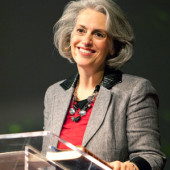Why do you believe in Jesus? It’s a question each one of us should be able to answer with confidence. Apologist J. Warner Wallace says that confidence comes from understanding the factual evidence for your faith.
“When I’d ask people around the country, “why are you a Christian?” I was surprised at the answers I’d get. They’re almost always based in personal, subjective experience: I was raised in the church, I’ve had a spiritual experience/something miraculous, or act of transformation.”
“These are the kinds of answers that pretty much anyone can give…regardless of any religion or theistic worldview you hold. Should Christians’ answers be like everyone else? It seems to me we could do better.”
“Our faith is based on an actual event — the resurrection of Jesus. If that didn’t happen, the whole thing is a sham. But it did happen, and we can talk about in terms of objective evidence.”
His years as a cold-case homicide detective taught Wallace the importance of building a convincing case from evidence. He says the goal of apologetics isn’t to answer every single question beyond every doubt, but to use the collection of evidence we have to make an informed decision.
“Every case I’ve worked has had unanswered questions. Every case you go to trial with, there’s significant unanswered questions that the prosecutor had to help his jury overcome. You could claim then, that in every criminal trial we make a decision without all the answers: that sometimes is called a step of faith. But it’s an informed step–it’s not as though it’s blind. We’ve got good evidence indicating that this is true, even though we don’t have every piece of evidence we might like. So we make a decision.”
“That’s really the kind of faith that Jesus was describing. He consistently, as a case maker, said look, if you don’t believe what I’m telling you, at least believe the evidence of these miracles. He spent 40 days with the disciples after the Resurrection, providing them with the convincing proofs they would need to be able to make the case when He was gone.”
We might wonder what part our ability to make the case plays into effective evangelism. After all, if God is in control of people being saved, why does He need our limited abilities to talk about Him with others?
“It is all God, in the sense that He’s doing something first…softening the heart, removing the enmity. Why does He need me at all? Couldn’t God go all the way from start to finish? Of course He could. But He’s using me to evidentially make the case.”
“Why would He do that? Because He loves two people in that room. He loves the kid who He just removed the enmity from, and He’s saving that kid by drawing Him to Himself. He also loves me enough to know that, in my effort to learn more about Him, to study all the evidence, I am becoming closer and closer to Him; it’s a sanctification process for me.”
“It’s His love of both of us–to save one of us and to mature the other–occurring in that room. It’s all God from start to finish, but He is using us as the means by which we can reach a lost world.”
J. Warner Wallace is a cold-case homicide detective, popular national speaker and best-selling author. He serves as a Senior Fellow at the Colson Center for Christian Worldview. He is also an adjunct professor of apologetics at Biola University and a faculty member at Summit Ministries. He’s the author of , God’s Crime Scene, and his newest book, Forensic Faith.
Building a Forensic Faith



















